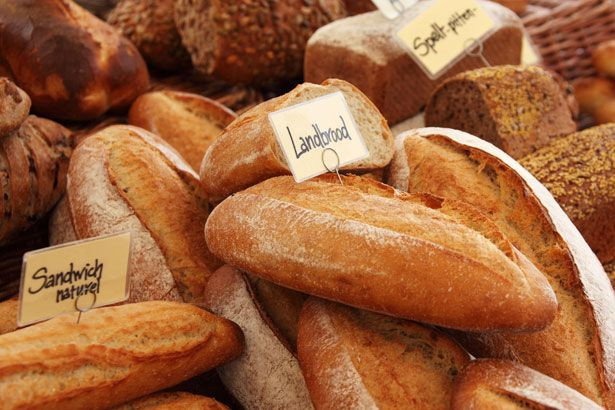Celiac Disease Sufferers Who Don’t Control Their Diet May Be At Risk For Lymphoma

People with celiac disease know that they must be extremely careful with their diets because of severe reactions to gluten in their gastrointestinal tract. By eliminating foods that contain gluten, then, celiacs can eliminate their symptoms. But for those who don't know that they have the disease or for those who do but choose not to change their diets accordingly, there may now be even more of a reason to choose gluten-free foods in the future.
"After the diagnosis is made and the patient starts a gluten-free diet, we expect to see recovery of the villi," said Peter Green, M.D., professor of medicine and director of the Celiac Disease Center at Columbia University Medical Center, in a press release.
Villi are finger-like projections that increase the surface area of the intestines and allow for greater uptake of nutrients. But when inspected by biopsy, they appear to be flat in those suffering from chronic celiac disease, showing that these individuals have a malabsorption of food. But according to a new study performed at Columbia University, celiac disease is an allergic reaction to the gluten protein, and chronic immune activation in the gut may lead to lymphoma.
Read more: Soon there may be a pill for celiac disease like there is for lactose intolerance
In the study, researchers looked at biopsies from 28 pathology departments across Sweden, covering 7,625 patients with celiac disease. These patients had both an initial biopsy and a follow-up biopsy after their diagnosis to confirm that their villi didn't remain flattened after switching to a proper diet. The researchers observed 3,308 patients with persistent damage to the intestines that did not heal.
The researchers then crosschecked the information of patients who had villus atrophy with that of patients who developed a lymphoproliferative disease, which is a blood cancer like lymphoma or leukemia. They found that the incidence of lymphoma among all celiac patients was 68 cases per 100,000 patients — more than double the risk for the general population without celiac disease.
This jumped to 102.4 cases per 100,000 patients in those who had flattened villi at the second biopsy, compared to 31.5 per 100,000 patients for those who had healed and showed healthy protruding villi.
Read more: The FDA sets guidelines for calling food 'gluten-free'
Healing from the damage-induced form of celiac disease is positively correlated with adhering to a strict gluten-free diet.
"We know from prior studies that healing is more likely among patients who report strict adherence to the gluten-free diet, compared with those who admit to less-than-strict dietary habits," said study author Dr. Benjamin Lebwohl, M.D., of Columbia University.
The link between celiac disease and lymphoma has been known for a while, but researchers did not know whether diet could reduce the risk in patients. But now, the Columbia researchers have proven that dietary intervention by eliminating gluten intake can reduce a celiac disease sufferer's risk of lymphoma.
Source: Lebwohl B, Granath F, Ekbom A, et al. Mucosal Healing and Risk for Lymphoproliferative Malignancy in Celiac Disease: A Population-Based Cohort Study. Annals of Internal Medicine. 2013.



























